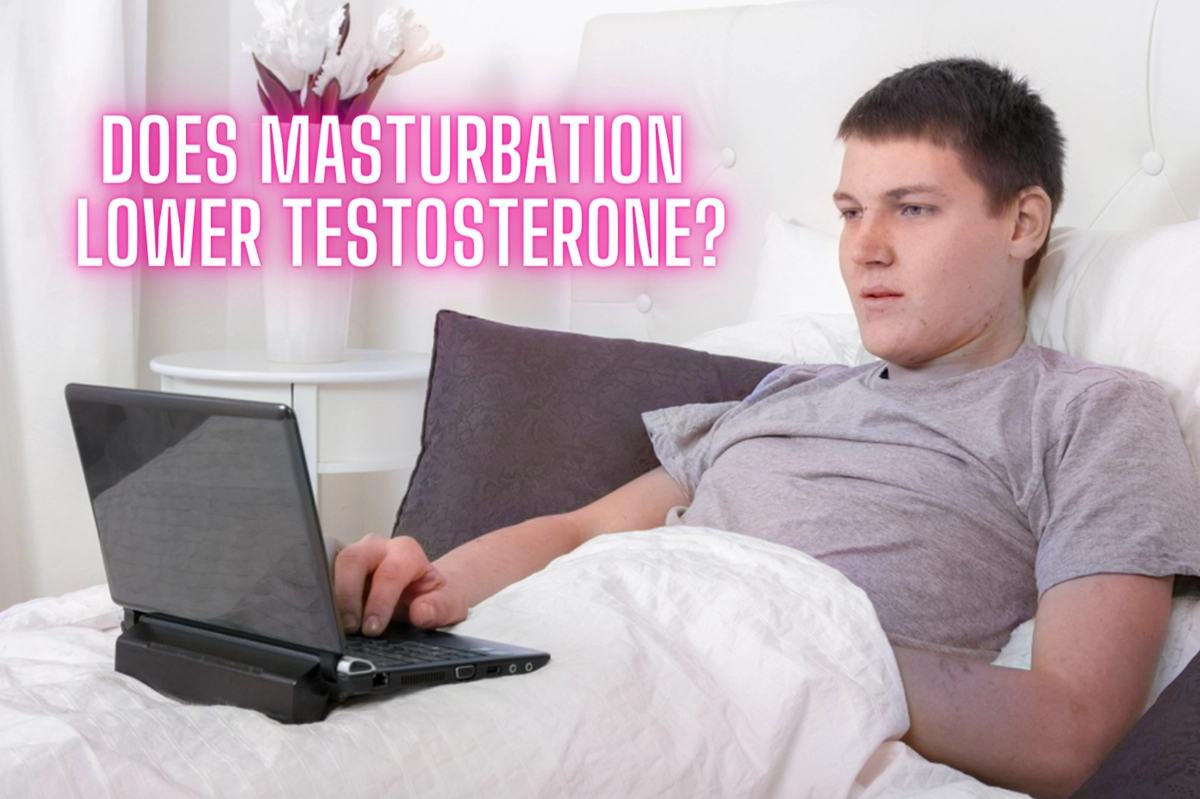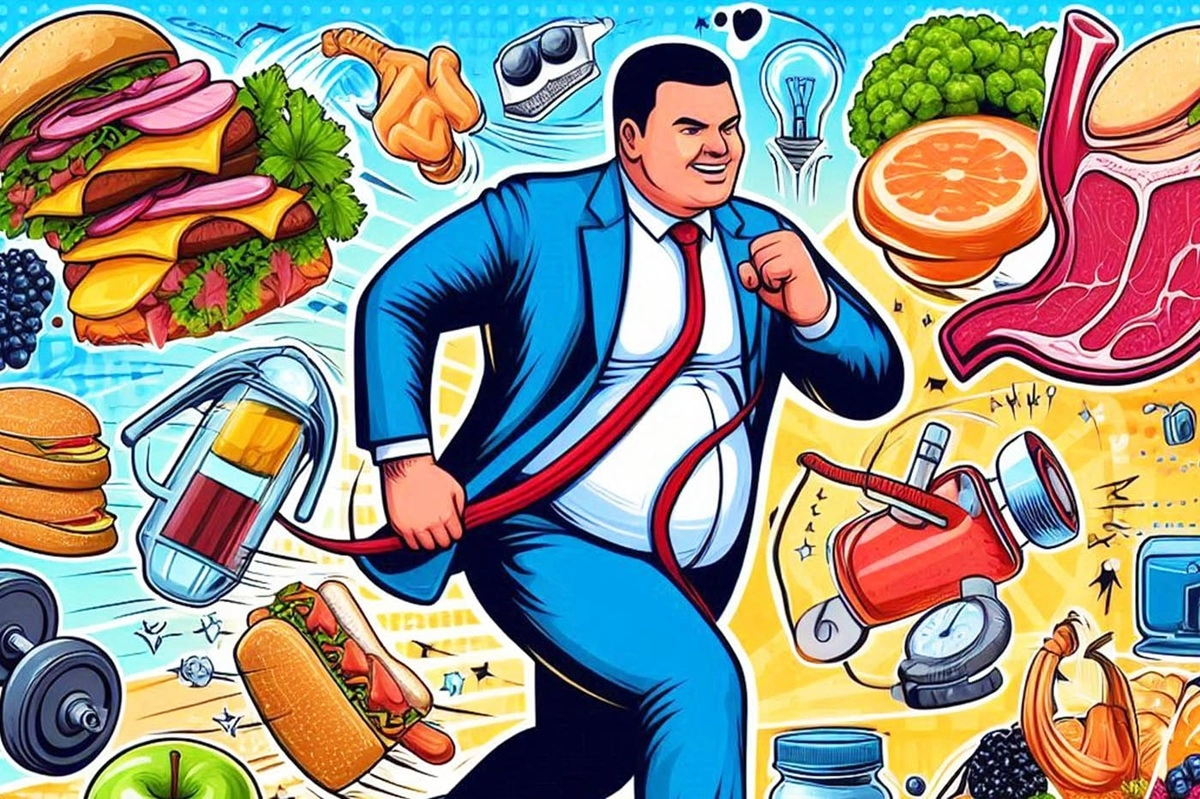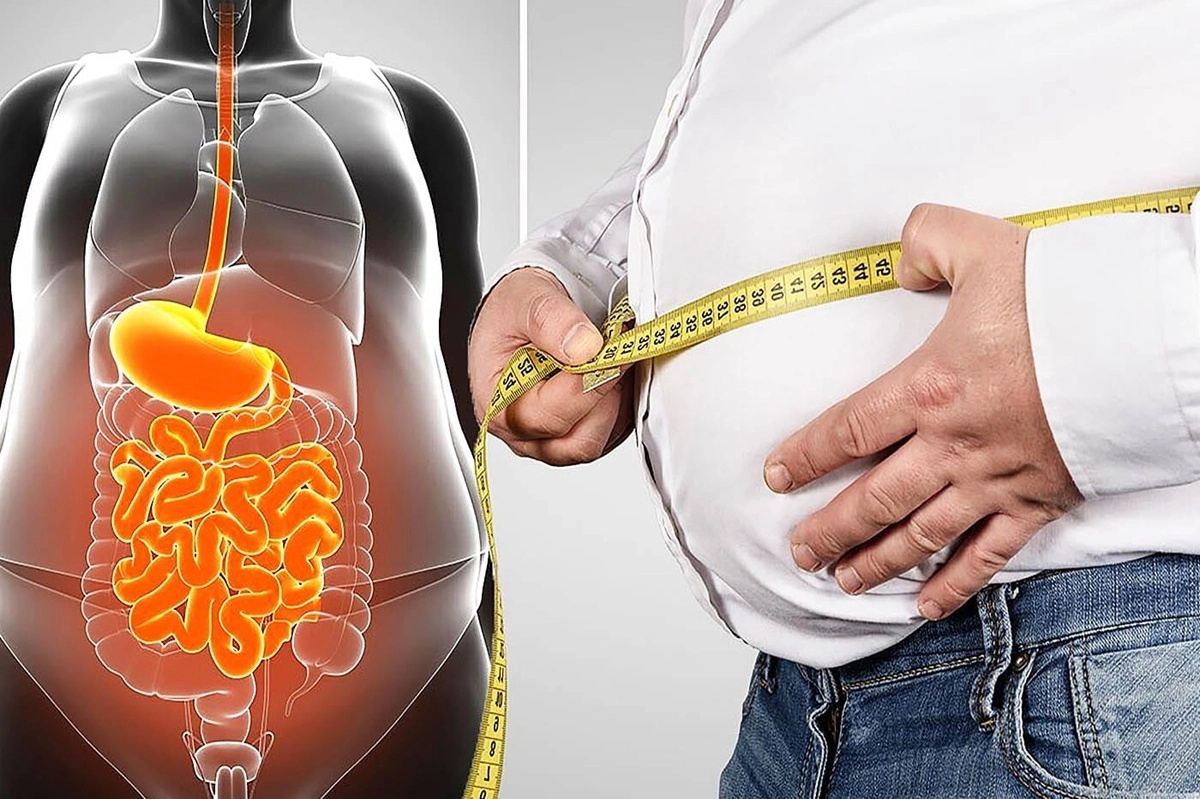You’ve probably wondered about masturbation’s effects on your testosterone levels, especially if you’re looking to build muscle or improve athletic performance.
While many gym myths suggest avoiding it before workouts, the science tells a different story. Just as Arnold Schwarzenegger famously declared “milk is for babies” when discussing nutrition myths, it’s time to separate fact from fiction regarding this topic’s impact on your hormones.
Let’s explore what current research reveals about this relationship.
Introduction To Testosterone And Masturbation
Many people wonder if masturbation affects testosterone levels. Understanding the role of testosterone and common myths about masturbation can help clarify this.
#The Role Of Testosterone In The Body
Testosterone is a key hormone in the body. It affects many functions.
- Muscle growth: Helps build and maintain muscle mass.
- Bone density: Keeps bones strong and healthy.
- Mood regulation: Influences mood and energy levels.
- Sex drive: Boosts libido and sexual function.
Testosterone is crucial for both men and women. It plays a vital role in overall health.
#Common Myths About Masturbation Effects
There are many myths about masturbation and testosterone.
Myth 1: Masturbation significantly lowers testosterone levels. Studies show this is not true. Testosterone levels remain stable.
Myth 2: Frequent masturbation harms sexual health. No evidence supports this. Masturbation is a normal activity.
Myth 3: Masturbation causes long-term hormonal issues. There is no scientific proof for this claim.
Understanding the facts can help dispel these myths. It’s important to rely on science, not rumors.
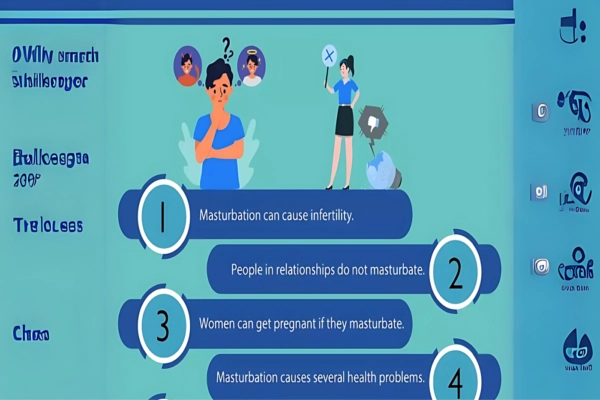
The Science Behind Testosterone Levels
Understanding the science behind testosterone levels helps in addressing common myths. One prevalent question is, does masturbation lower testosterone?
Let’s explore the factors influencing testosterone levels.
1. How Testosterone Is Produced
Testosterone is a crucial hormone in both men and women. It plays a significant role in muscle mass, bone density, and sexual health.
The production of testosterone occurs primarily in the testes for men and the ovaries for women. The adrenal glands also produce small amounts in both sexes.
A process called steroidogenesis converts cholesterol into testosterone. This process involves several steps and enzymes.
The hypothalamus and pituitary gland regulate testosterone production. They release hormones that signal the testes or ovaries to produce testosterone.
2. Factors Affecting Testosterone Levels
Several factors can influence testosterone levels. These include age, lifestyle, and medical conditions.
- Age: Testosterone levels naturally decline with age. This decline starts around age 30.
- Diet: A balanced diet supports healthy testosterone levels. Nutrient deficiencies can lower testosterone.
- Exercise: Regular physical activity, especially strength training, can boost testosterone levels.
- Stress: High stress levels lead to elevated cortisol, which can lower testosterone.
- Sleep: Quality sleep is essential for maintaining healthy testosterone levels. Poor sleep can reduce testosterone.
- Medical Conditions: Conditions like obesity and diabetes can negatively impact testosterone levels.
Understanding these factors helps in maintaining optimal testosterone levels. It also debunks myths surrounding activities like masturbation.
Masturbation: Myths Vs. Facts
Masturbation is a natural activity. Many myths surround it, especially its effect on testosterone levels. This section will clarify common misconceptions and present the facts.

#Origins Of The Masturbation-testosterone Myth
The myth that masturbation lowers testosterone comes from outdated beliefs. Early studies lacked modern research techniques. These studies suggested a negative impact on hormonal levels. This led to widespread misinformation.
Cultural taboos also fueled these myths. Many cultures viewed masturbation as harmful or immoral. This further spread the idea that it affects testosterone negatively.
#What Research Says About Masturbation And Hormones
Recent research shows no significant impact on testosterone from masturbation. Studies indicate that testosterone levels remain stable after masturbation. Researchers have used advanced techniques to measure hormone levels accurately.
Some studies even suggest that masturbation might have temporary effects. These effects are minor and short-lived. Overall, masturbation does not harm hormone balance.
| Myth | Fact |
| Masturbation lowers testosterone permanently | Testosterone levels remain stable |
| Masturbation causes hormonal imbalances | No long-term hormonal changes |
Understanding the difference between myths and facts is crucial. It helps in making informed decisions about your health.

What’s the Connection Between Masturbation and Testosterone?
Masturbation causes only temporary changes in testosterone levels. After ejaculation, testosterone may briefly dip or spike but returns to normal within hours.
There is no long-term hormonal impact. Psychological and lifestyle factors, such as stress and body fat, influence testosterone more than masturbation itself.
What does the research say?
While research on masturbation’s effects on testosterone remains limited, several key studies have explored this relationship over the past few decades. A 1972 study found that masturbation-induced orgasm doesn’t considerably impact serum testosterone levels, challenging common misconceptions about frequency of masturbation lowering T levels.
Interestingly, a 2001 study showed that abstaining from masturbation for three weeks might slightly increase testosterone production. However, the short-term effects are more clearly documented: testosterone levels naturally rise during sexual activity and return to baseline after orgasm.
Research on hormone receptors has yielded mixed results. Rat studies suggest that frequent masturbation might affect androgen and estrogen receptors differently, though these findings’ relevance to humans isn’t fully understood.
More research is needed to determine the true impact on testosterone levels.
Will masturbation affect your muscle building?
Many bodybuilders and fitness enthusiasts worry that masturbation could hinder their muscle gains, but the science doesn’t support this concern. The relationship between testosterone levels and sexual activity shows only minor, temporary fluctuations that won’t impact your muscle-building progress.
If you’re following a healthy lifestyle with proper nutrition and consistent workouts, masturbation won’t interfere with your muscle mass development. Testosterone’s primary role in muscle building is to help your body synthesize protein, and research shows that normal sexual activity doesn’t greatly alter these hormone levels enough to affect gains.
You can focus on your fitness goals without worrying about whether masturbation is affecting your progress. What matters most is maintaining a balanced training program, adequate rest, and proper nutrition for peak muscle growth.
Short- and long-term effects
Research has revealed fascinating short-term effects of masturbation on testosterone levels, though scientists are still studying the long-term impacts.
Studies show your testosterone spikes notably during ejaculation but returns to baseline within 10 minutes. You’ll also experience increases in cortisol and prolactin that continue rising after ejaculation.
Research studies confirm that active sexual activity, compared to just observing, leads to higher testosterone increases. Whether you’re engaging in intercourse or masturbation, your testosterone levels peak during the act.
While these short-term effects are well-documented, the long-term effects remain unclear. Scientists haven’t yet conducted enough extensive research to determine how regular masturbation impacts hormonal ratios and testosterone levels over time.
More research, especially including female participants, is needed to fully understand these relationships.
Signs of low or high testosterone
You’ll want to watch for key indicators that your testosterone levels aren’t in the normal range, whether too low or too high.
If you notice symptoms like fatigue, depression, and reduced muscle mass, you might’ve low testosterone that requires medical attention.
On the flip side, high testosterone can manifest through increased aggression, acne breakouts, and accelerated male pattern baldness – signs that Arnold himself had to monitor during his peak competitive years.
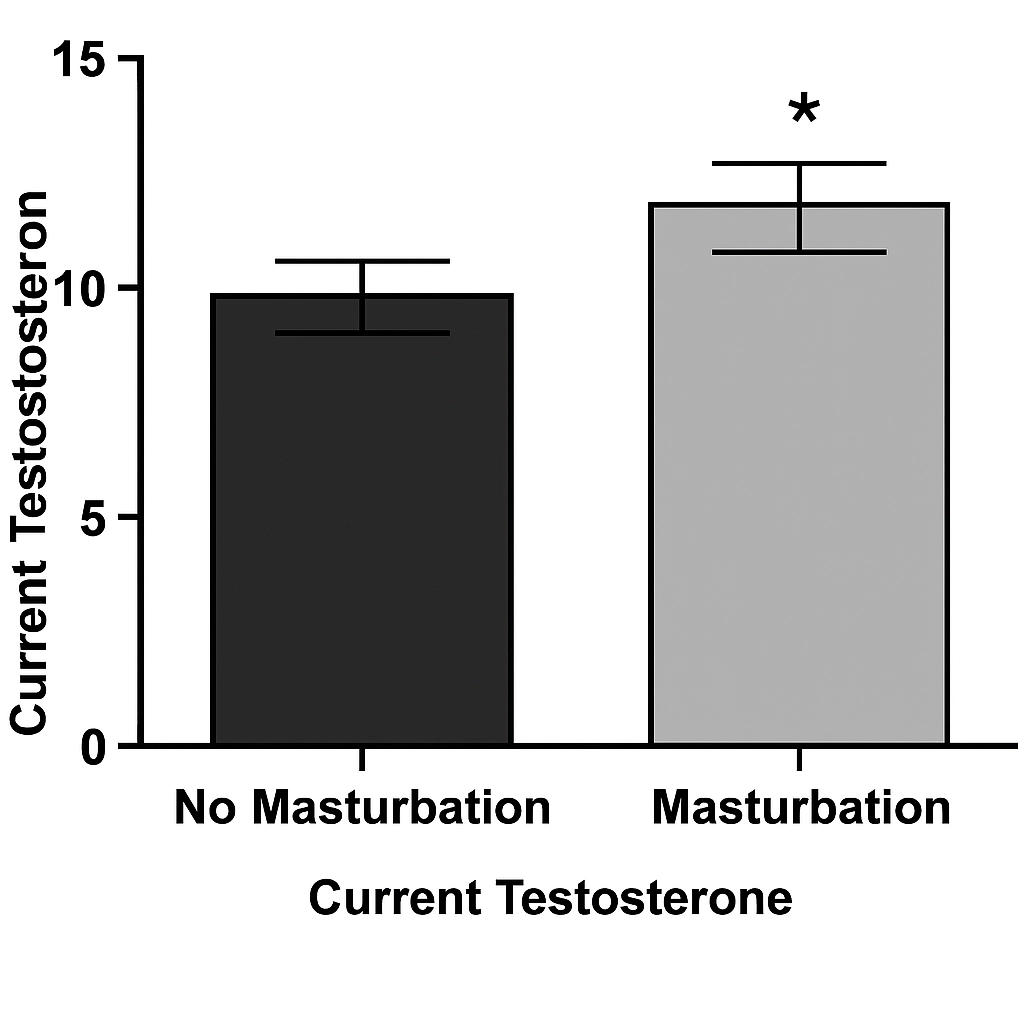
1. Low testosterone levels
Males experiencing low testosterone levels often notice considerable changes in their physical and mental well-being. The most common symptoms include reduced lean muscle mass, erectile dysfunction, and a decreased sex drive.
You might also experience fatigue and mood disturbances, such as irritability or depression.
If you’re diagnosed with low testosterone, your doctor may recommend testosterone replacement therapy through patches, gels, or muscle injections. While this treatment can help improve muscle strength, research hasn’t consistently shown it enhances cardiovascular health, mood, or sexual function in all patients.
It’s essential to recognize that concerns about masturbation affecting testosterone levels are largely unfounded, as normal sexual activity doesn’t notably impact long-term hormone production.
If you’re experiencing symptoms of low testosterone, consult a healthcare provider for proper evaluation and treatment options.
2. High testosterone levels
The occurrence of high testosterone levels in adult men is relatively rare compared to low testosterone conditions.
While many worry about primary hypogonadism or secondary hypogonadism causing low T, excessive testosterone isn’t typically a concern for adult males.
High testosterone levels can be more problematic in specific groups. In young children, elevated T levels may trigger early puberty and potentially affect future fertility.
Women face particular challenges with alterations in testosterone levels, often manifesting as polycystic ovary syndrome. You might notice these key symptoms in females:
- Acne breakouts
- Facial or chest hair growth
- Male-pattern scalp hair loss
- Irregular periods
- Voice deepening
If you’re experiencing symptoms of high testosterone, it’s crucial to consult your healthcare provider for proper evaluation and treatment.
What are the benefits and risks of masturbation?
Despite common misconceptions, masturbation offers numerous scientifically-proven benefits while carrying minimal physical risks when practiced in moderation.
It’s a natural way to improve both sexual health and mental health through stress relief, better sleep, and reduced anxiety over time.
Research shows that masturbation doesn’t negatively impact testosterone levels or sexual performance. However, psychological factors like guilt or relationship issues can indirectly affect hormonal balance.
The key is maintaining a healthy perspective and open communication with your partner about sexual habits.
Benefits include:
- Stress and tension relief
- Improved mood and sleep
- Better understanding of sexual desires
- Enhanced relationship quality
- Relief from physical discomfort
Remember that any negative effects typically stem from lifestyle choices or emotional responses rather than the act itself.
Lifestyle, Diet, And Their Role In Testosterone Maintenance
The debate about masturbation and testosterone levels is common. Many men worry about its effects on their hormone balance. Scientific research provides some clarity on this topic. Let’s dive into the findings.
#Summarizing The Scientific Consensus of Masturbation
Various studies explore the link between masturbation and testosterone. The general consensus is quite clear. Masturbation does not significantly impact testosterone levels.
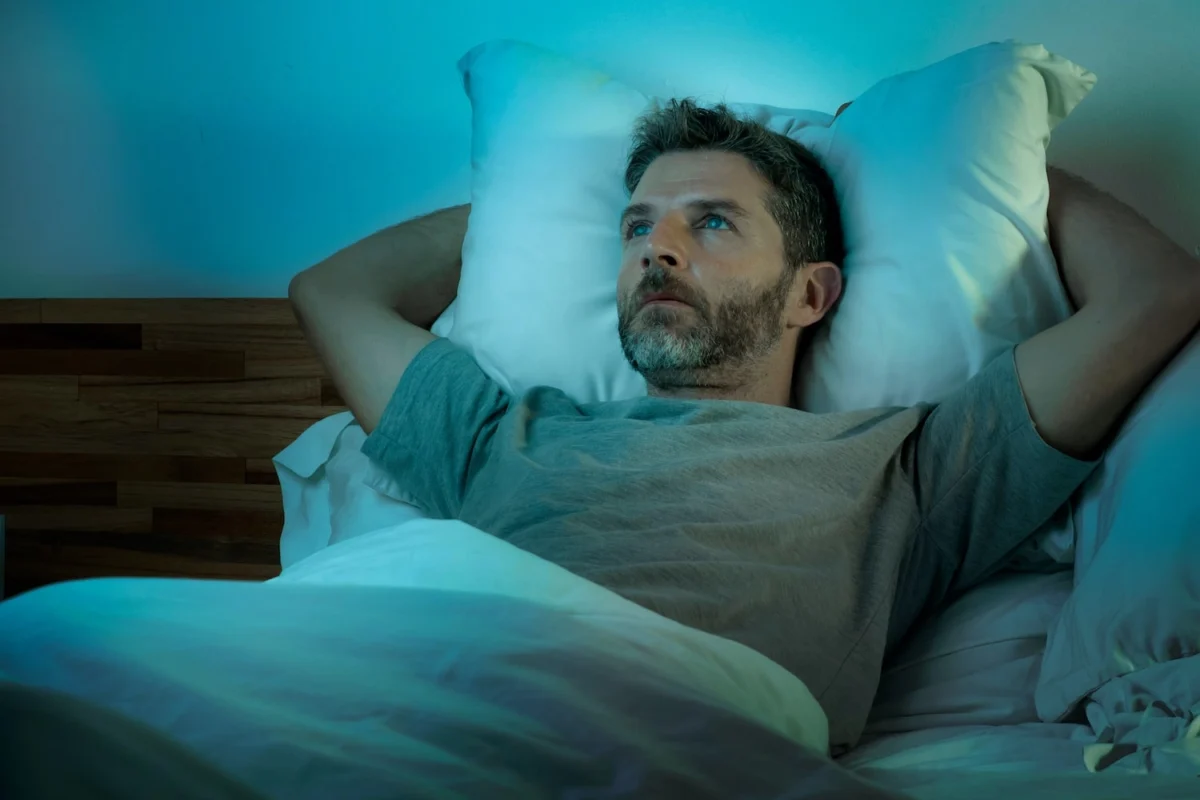
Researchers have found minor fluctuations in hormone levels after ejaculation. These changes are temporary and return to normal quickly. No long-term effects on testosterone have been observed.
Here are some key points from the studies:
- Short-term testosterone spikes may occur after ejaculation.
- These spikes are brief and not harmful.
- Long-term testosterone levels remain stable.
#Final Thoughts And Recommendations For Men’s Health
Maintaining a healthy lifestyle is crucial for overall well-being. Regular exercise, balanced diet, and good sleep positively influence hormone levels.
Masturbation is a natural activity. It does not have negative long-term effects on testosterone. Men can engage in it without worrying about their hormone balance.
Here are some tips for men’s health:
- Exercise regularly to boost overall health.
- Eat a balanced diet rich invitamins and minerals.
- Ensure adequate sleep to maintain hormone balance.
- Manage stress through relaxation techniques.
Understanding these factors can help men make informed choices. Prioritizing health will lead to a better quality of life.
To Wrap It All Up
You don’t need to worry about masturbation affecting your testosterone levels. Studies show that any hormonal changes from sexual activity typically return to normal within 15-20 minutes. What matters most is maintaining a healthy lifestyle through proper nutrition, regular exercise, and adequate sleep.
Focus on these proven factors to optimize your hormone levels and overall fitness goals, rather than concerning yourself with unfounded myths about masturbation’s effects.
FAQs
Does Masturbation Affect Testosterone Levels?
Masturbation does not significantly affect testosterone levels. Short-term fluctuations may occur after orgasm, but long-term testosterone production remains stable. Scientific studies show no consistent link between masturbation frequency and hormonal imbalance or reduced testosterone.
Can Frequent Masturbation Lower Testosterone?
Frequent masturbation does not lower testosterone levels in a clinically significant way. Research shows no long-term decrease in testosterone due to masturbation, even when frequent. Temporary hormonal changes may occur after ejaculation, but baseline testosterone remains unaffected.
How Long Does It Take for Testosterone to Recover After Ejaculation?
Testosterone typically returns to baseline within 24 hours after ejaculation. While there may be a brief dip immediately following orgasm, clinical studies show hormone levels normalize quickly without long-term suppression or impact on production.
How Do Athletes Manage Testosterone and Sexual Habits?
Athletes manage testosterone and sexual habits by balancing training loads, sleep, and sexual activity timing. Some avoid sex before competitions to maximize aggression or focus, though evidence is mixed. Maintaining high testosterone involves recovery, nutrition, and limiting activities that disrupt hormonal balance.
Can Diet and Exercise Offset Any Testosterone Dips From Masturbation?
Diet and exercise can support healthy testosterone levels, but masturbation does not cause significant dips that need offsetting. Regular physical activity, adequate sleep, and nutrient-rich foods maintain hormone balance regardless of sexual activity frequency.
Can Abstaining From Masturbation Increase Testosterone?
Abstaining from masturbation may cause a short-term spike in testosterone around day 7, but levels return to normal afterward. Long-term abstinence does not lead to sustained increases in testosterone. Clinical evidence shows no consistent hormonal benefit from avoiding ejaculation.

